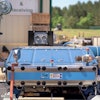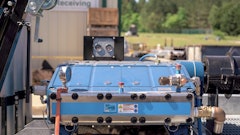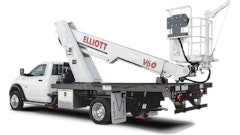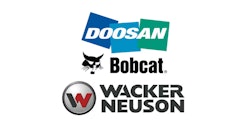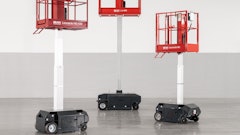
In addition to the massively important subject of hiring great people that I addressed in the August/September issue of this magazine, retaining and training of team members deserves a major spotlight as well. It is so wise to invest in those who are currently already on board. It’s likely that some or most of your staff have not yet reached their full potential. Every rental company should aspire to have even more spectacular performers.
Here are just a few key retaining and training points to consider:
- Use job enrichment when possible. Some current employees can be trained to handle additional (and sometimes higher level) job duties. Employees can sometimes feel “stuck in a rut” and a few expanded duties can help negate that.
- Consider instituting rewards and other perks that your employees are not likely to receive elsewhere if they are ever tempted to leave your company.
- Of course, be certain that your employees are receiving fair wages. Sometimes it's difficult to compete with government institutions and the large corporations, but you may be able to offer the kind of personalized perks and caring, family atmosphere that others can’t match.
- Concentrate a healthy amount of your strengthening efforts on your front-line employees who communicate daily with phone, in-person, and internet customers and prospects. Just imagine the enormous opportunity of what even a modest improvement in their selling skill level can produce. Every position in a rental company is critical to the company's success, and training and retaining everyone is extremely important.
- Develop efficiency focused training programs that are specific to your company’s needs. In addition to some of the obvious advantages of having employees make more efficient use of their time, better training programs help with employee retention. When employees feel confident, efficient, and strong in the performance of their duties (and are continuously learning new skills), they are more apt to stay at the company. There is a stronger sense of being a true professional. Be certain that managers and other supervisors receive a healthy dose of the training necessary to keep the efficiency initiative vibrant daily–long after the initial training is completed.
- If employees do not have a comprehensive orientation and solid training in the beginning, they won’t be as likely to grasp the joy of making a career at your equipment rental company. Also, having a more organized, systematic way of doing things in their day-to-day business activities takes away some of the out-of-control and other annoying aspects of working in a rental business. Also, consider having a specific “duties and responsibilities” sheet developed for each worker in your company.
- Have some performance-based incentives for your staff. Make sure that these incentives are well-crafted and specific to your rental company. Some incentives can be constructed around measureable production, quality, and safety goals. I believe that performance incentives can be an important part of making work more interesting and rewarding, so consider performance-based rewards for most or all of your staff. Some of these incentives can be designed for individual performance and others for team performance. Done correctly, these rewards can help increase revenue and decrease expenses. Also, they can boost overall morale as well as retention.
- Be certain to compliment your staff. Even if you feel they know how much you appreciate them, it is still important to say the words. It would also be wise to train your managers, supervisors, and team leaders in the “when and how” to compliment as well.
Remember, it is so important to have an effective employee retention and training system. When you do get someone with excellent potential, be sure to prepare them properly for success and growth. Ask yourself what is being done at your rental company to keep your staff from drifting away. The possibilities and what works depends on a wide variety of factors and are rental-company specific, but try not to become convinced that nothing can be done to slow the revolving door of employees coming in and quickly exiting.
![Photo Of Dick Detmer 60999537d4064[1] Headshot](https://img.forconstructionpros.com/files/base/acbm/fcp/image/2024/03/Photo_of_Dick_Detmer.60999537d4064_1_.65e72fd913082.png?auto=format%2Ccompress&crop=faces&fit=crop&h=48&q=70&rect=0%2C420%2C2336%2C2336&w=48)

